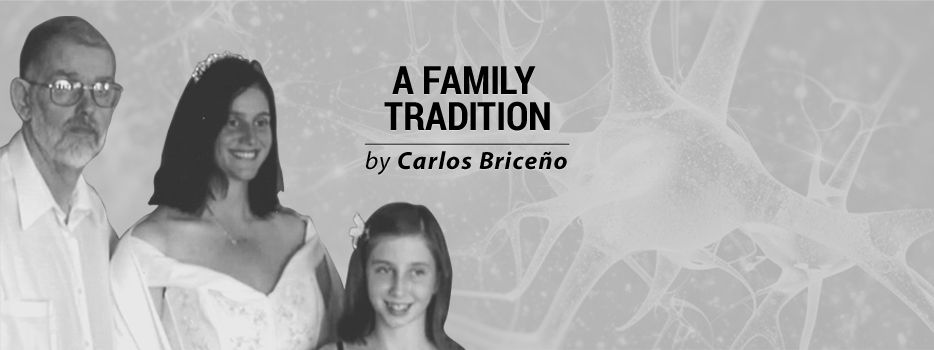As Caregivers, We Can Choose a Positive Mindset

It’s all about the mindset.
I suggest caregivers work on developing a positive mindset. It makes life much easier and more joyful. For instance, waiting in line is not fun for me. But I have learned to pray while I wait. What used to be annoying is now positive.
In contrast, a negative mindset can make life dreary and lead to the mistreatment of others.
That is important in the context of the Huntington’s community because a caregiver’s mindset — positive or negative — will impact the object of their care.
Here is an example. Years ago, when I was in my 30s and my father was in his 70s and slowing down, we went to Home Depot. In case you haven’t had the pleasure of visiting a Home Depot, it feels like you’re walking inside of a large convention center, except there are a lot of tools and awesome home improvement products.
Because my father was unable to walk as fast as he used to, I grew impatient with him. At a certain point, I walked my normal pace. I was visiting him in Florida from my home in New York City, where most people walk as fast as Olympic sprinters, so my normal pace was turbocharged compared to his.
When I reached my targeted aisle, I spent about five minutes backtracking, looking for my father, and being super annoyed in the process before I spotted him.
At the time, he had not suffered the stroke that would slow him down even more. He was still healthy enough for a man his age. But the fact remains: I should have given him greater respect. Clearly, he could not keep up, yet I did not slow down.
My mindset was negative. I thought of myself as superior and believed he needed to deal with life on my terms. I saw him as old and a bit useless, so therefore, his needs were not as important as mine — which were to jet into the store and then jet out.
I realize now that I did not want my father to be old. I wanted him young and healthy, like I remembered him when I was a kid. I was in denial that he was getting older. I didn’t know it at the time, but about 10 years later, he would die. If he were still around, I would apologize to him. I realize now that what I did was wrong, which is why I want to share the following lesson.
Most caregivers are usually in better health than the people they are taking care of. Most are usually living their lives differently — such as the speed at which they complete a task — than those who are ill or suffering. It would be easy for a caregiver to be negative to the one who is sick by saying, for example: “You are taking too much of my time.” “You are annoying me with all your needs.” “You are a heavy financial burden.” And so on. Obviously, those are negative mindsets.
Positive ones look like this: “I’m learning humility by taking care of you. Thank you.” “I love you, and I am so happy to show my love by taking care of your needs.” “I appreciate all you have done for me, and I’m happy to repay it by being here for you.” “It is better to give than to receive.” These are the thoughts that I focus on when providing care for my wife and daughter, who both have Huntington’s.
Even if the person we are taking care of is a giant pain or has been tough on us, adopting a positive mindset is still helpful. I can’t change the other person’s behavior, but I can change mine. Even if we are not feeling well as a caregiver, we still have the choice to be positive.
The choice remains. I say, be positive. It will add joy to our lives, and that is always a fabulous way to live.
***
Note: Huntington’s Disease News is strictly a news and information website about the disease. It does not provide medical advice, diagnosis, or treatment. This content is not intended to be a substitute for professional medical advice, diagnosis, or treatment. Always seek the advice of your physician or other qualified health provider with any questions you may have regarding a medical condition. Never disregard professional medical advice or delay in seeking it because of something you have read on this website. The opinions expressed in this column are not those of Huntington’s Disease News or its parent company, BioNews, and are intended to spark discussion about issues pertaining to Huntington’s disease.







Comments
Beverly Peterson
What good advice! Thanks for sharing it. I will remember what you have taught me.
Carlos Briceño
Thanks for your kind words, and you're welcome!